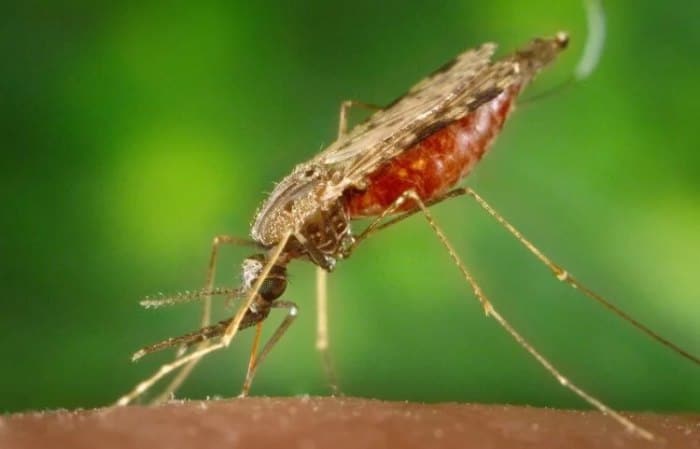
Scientists create ‘antimalarial’ mosquitoes
(ORDO NEWS) — About half of the world’s population lives in areas where malarial mosquitoes are found, and every year millions of people get sick and thousands die from malaria.
To create another way to fight this devastating disease, scientists have tweaked the genes of the malarial mosquito so that it becomes the death of the malaria pathogen itself.
In 2021 alone, over 241 million people fell ill with malaria, resulting in 627,000 deaths, mostly in children under the age of five in sub-Saharan Africa.
At the same time, since 2015, progress in the fight against malaria has stalled: malarial mosquitoes and the parasites they carry are becoming resistant to insecticides and drugs, and funding for the development of new ones has sharply decreased.
Malaria is transmitted from person to person through mosquito bites: the causative agent, the malarial Plasmodium , must develop in the intestines of the mosquito and enter its salivary glands in order for the insect to become dangerous to humans.
However, only one in ten mosquitoes will live long enough for Plasmodium to reach its salivary glands - and in their new work, the team of researchers tried to further reduce their number.
By modifying the genome of the malaria mosquito Anopheles gambiae (this species predominantly carries malaria in Africa), the researchers ensured that its intestines began to produce special compounds - antimicrobial peptides.
These substances, originally isolated from African bees and smooth clawed frogs , disrupt the development of malarial plasmodium, slowing it down by several days.
In addition to the effect on the parasite, the peptides shortened the life of the mosquito itself, so that in natural conditions, where most animals die before natural death, this should lead to a sharp reduction in insects dangerous to humans.
In other words, the modified mosquitoes will somehow die before the malarial plasmodium can reach their salivary glands, and the parasite will die with them.
Of course, the creation of transgenic mosquitoes is far from the main thing: large-scale trials are ahead of scientists to prove the effectiveness and safety of the new malaria control technology.
The first steps have already been taken: since the modified mosquitoes are unlikely to be able to naturally spread their genes due to competition with unmodified counterparts, the researchers are going to use the gene drive to increase the likelihood of inheriting “antimalarial” genes.
If the technology justifies itself, over the next two to three years, scientists are going to conduct field trials, including jointly with colleagues from African countries, such as Tanzania.
The scientists plan to test the new mosquitoes in conditions as close to natural as possible and evaluate their effectiveness against local strains of Plasmodium.
Unfortunately, the experience of the past years has shown that the fight against malaria is much more difficult than it might seem at first glance.
A comprehensive approach will have to be taken - new drugs, new vaccines and new malaria mosquitoes - so that one day the people of the future will finally be able to end this dangerous disease.
—
Online:
Contact us: [email protected]
Our Standards, Terms of Use: Standard Terms And Conditions.









